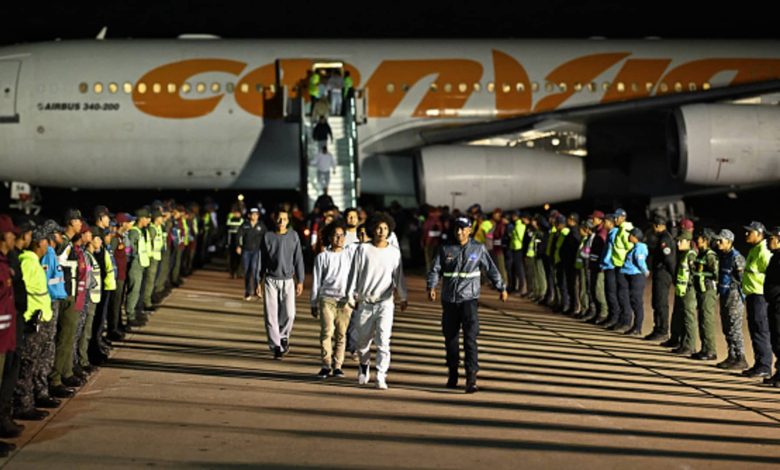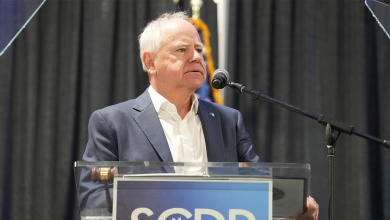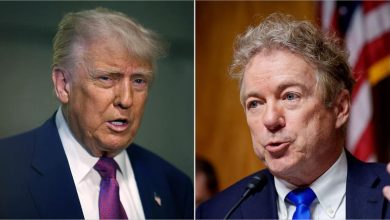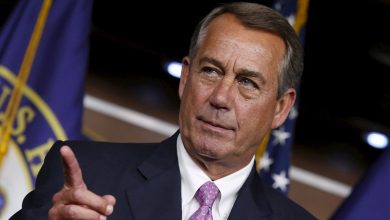Trump can revoke immigrants protected status

Venezuelan migrants deported from the United States and stranded in Honduras disembark from a Conviasa Airlines plane upon arrival at Simon Bolivar International Airport in Maiquetia, Venezuela on March 24, 2025.
Juan Barreto | Afp | Getty Images
The Supreme Court ruled Friday that President Donald Trump can terminate the protected status of around 500,000 immigrants from Cuba, Haiti, Nicaragua, and Venezuela while an appeal of the president’s order is still pending.
Justice Ketanji Brown Jackson, in a scathing dissent joined by Justice Sonia Sotomayor, said the majority of the Supreme Court “has plainly botched” its assessment in granting a stay of a lower court ruling that had blocked the terminations ordered by Trump on his first day back in the White House.
Until that order, the group of immigrants who had left their home countries because of conflicts there, or unsafe living or working conditions, were allowed to remain in the United States for up to two years.
“I suppose, that it is in the public’s interest to have the lives of half a million migrants unravel all around us before the courts decide their legal claims,” Jackson wrote sarcastically in her dissent.
She said that the Supreme Court’s ruling, which did not explain the grounds for the decision, “undervalues the devastating consequences of allowing the Government to precipitously upend the lives and livelihoods of nearly half a million noncitizens while their legal claims are pending.”
“While it is apparent that the Government seeks a stay to enable it to inflict maximum predecision damage, court-ordered stays exist to minimize — not maximize — harm to litigating parties,” Jackson wrote.
The ruling comes nearly two weeks after the Supreme Court allowed the Trump administration to revoke the status of nearly 350,000 Venezuelan immigrants in the U.S. who are allowed to remain under the Temporary Status Program.
Friday’s ruling by the high court related to an executive order by Trump on Jan. 20 that instructed the Department of Homeland Security to terminate all so-called “categorical parole programs,” or CHNV parole, which allowed certain immigrants to live in the United States for up to two years, and for some to legally work in the U.S.
A group of plaintiffs challenged the DHS’s revocation of the programs in federal court in Massachusetts, where a judge stayed the department’s action after finding that federal law “requires that parole terminations occur on a case-by-case basis, rather than en masse,” Jackson’s dissent noted.
The 1st Circuit U.S. Court of Appeals upheld that decision. The Trump administration then asked the Supreme Court to undo to the lower courts’ decisions.
The Supreme Court is visible on July 29, 2024 in Washington, DC. In an op-ed in The Washington Post, U.S. President Joe Biden laid out his proposed reforms to the Supreme Court including 18 year term limits for Supreme Court Justices and a new code of ethics for the court ahead of a speech tonight at the Lyndon B. Johnson Presidential Library in Austin, Texas.
Andrew Harnik | Getty Images
Friday’s ruling by the Supreme Court means DHS can revoke the group’s protected status while the 1st Circuit considers an appeal of the order itself.
Jackson, in her dissent, wrote that the immigrants affected by Friday’s decision “now face two unbearable options.”
“On the one hand, they could elect to leave the United States and, thereby, confront ‘dangers in their native countries,’ experience destructive ‘family separation,’ and possibly “forfei[t] any opportunity to obtain a remedy based on their . . . claims,’ as the District Court found,” Jackson wrote.
“On the other, they could remain in the United States after parole termination and risk imminent removal at the hands of Government agents, along with its serious attendant consequences.”
“Either choice creates significant problems for respondents that far exceed any harm to the Government, should this Court decline the stay request,” she wrote.



